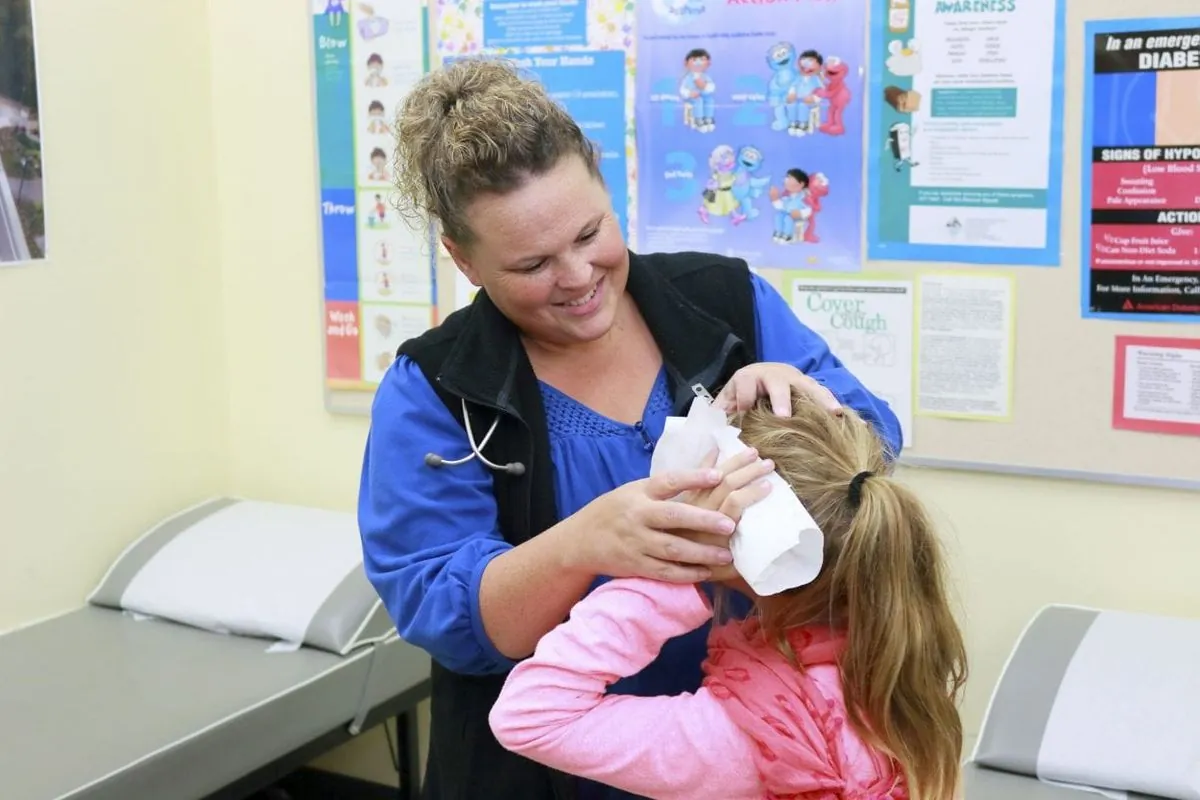NHS Nurses Address Developmental Delays in "Lockdown Babies" Starting School
NHS nurses are helping toilet train children born during Covid lockdowns as they begin school. Experts warn of long-term developmental issues and call for increased support for pandemic-affected youngsters.

NHS nurses are being called upon to assist with toilet training children born during the Covid-19 lockdowns as they commence their primary education this month. This unprecedented move highlights the significant developmental challenges faced by these "lockdown babies" as they enter the school system.
A recent report by Tim Oates, director of research at Cambridge University Press and Assessment, has shed light on the serious issues affecting children born during the peak of the pandemic. These problems include delayed language development, lack of toilet training, social anxiety, and impaired executive function. The report suggests that these children may struggle academically for the next decade, emphasizing the long-term impact of the pandemic on early childhood development.
In response to this crisis, local NHS services have implemented various initiatives. Medway Community Healthcare in Kent is offering "healthy bladder and bowel" workshops for parents in numerous schools. Similar programs are being conducted across the country, including bedwetting workshops in Walsall, Leeds, Warrington, and several London boroughs.

The Institute of Health Visiting (iHV) has also stepped up its efforts by providing additional training for NHS staff. These specialized workshops aim to equip nurses with the skills needed to address the unique challenges faced by Covid babies, focusing on toilet issues, picky eating habits, and emotional or social development concerns.
"The children who are starting school this autumn are the 'Covid-babies' who entered the world at the start of the pandemic and missed out on all the usual support services during their formative earliest years."
Statistics paint a concerning picture of school readiness among these children. A survey by the charity Kindred revealed that one in four new starters are not toilet trained, two in five struggle with basic instructions or dressing independently, and almost half have difficulty sitting still. Additionally, Speech and Language UK reported that one in five children face challenges with talking or understanding words.
The situation has been exacerbated by what experts call a "baby blind spot" in Covid recovery efforts. Unlike school-age children, there was no specific plan to address the needs of the youngest members of society. Alison Morton, chief executive of iHV, emphasized that the current situation was both predictable and preventable, calling for urgent government action to prioritize child health.
Charities have also played a crucial role in addressing this crisis. ERIC, a charity specializing in children's bowel and bladder health, launched an emergency campaign to help toilet train children before the start of the school year. Despite these efforts, experts warn that more comprehensive and long-term solutions are needed to support these pandemic-affected children throughout their educational journey.
As the UK continues to grapple with the aftermath of the Covid-19 pandemic, the plight of these "lockdown babies" serves as a stark reminder of the far-reaching consequences of global health crises on child development and education. The coming years will be crucial in determining how effectively society can address these challenges and support this generation of children in overcoming the unique obstacles they face.


































